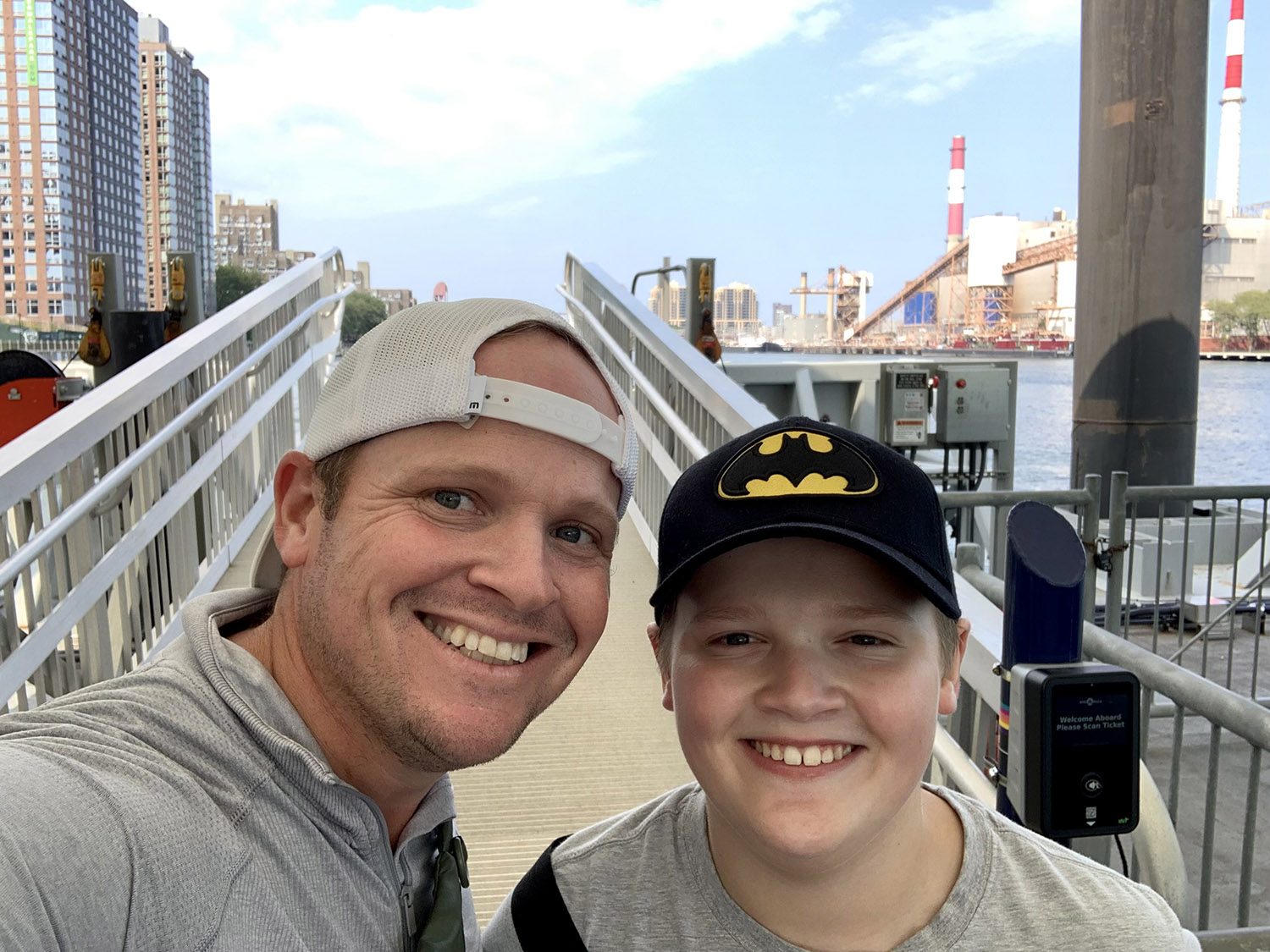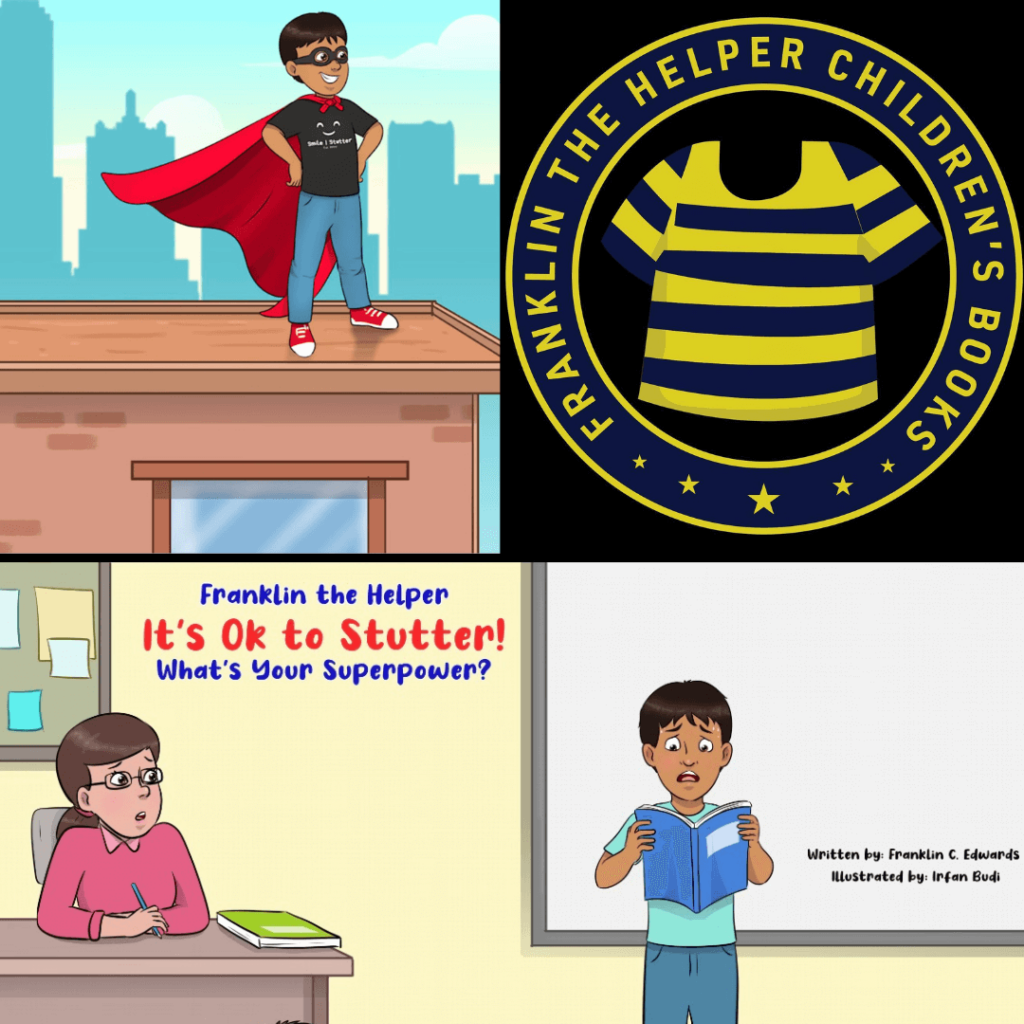Story by Grayson Mask. Photos provided by Smile I Stutter.
There is an organization in Dallas-Fort Worth that connects those with speech differences to each other, fostering bonds of friendship and support among them. Through this connection, individuals find solace knowing they are never alone in their journey.

Smile I Stutter is a registered 501©3 nonprofit organization that offers speech therapy and other essential mental health services to all those with a speech impediment. They work with children and families, licensed speech pathologists, and donors to provide the best resources available.
Meet Michael Campbell, the founder of Smile I Stutter. Michael’s journey began in a small town, where resources for children who stuttered were scarce. Growing up, he felt ashamed of his speech and endured bullying and teasing from his peers. The torment didn’t stop in school; in 7th grade, Michael found himself abruptly transferred from honors classes to a special needs class, a defining moment that shaped his educational experience.
Despite the challenges, Michael refused to let his stutter define him. Determined to make a difference, he founded Smile I Stutter, an organization dedicated to providing support and resources for individuals who stutter. Through Smile I Stutter, Michael aims to create a community where everyone feels accepted and empowered, regardless of their speech impediment. His personal journey fuels his passion to break down barriers and advocate for inclusivity and understanding.
When Michael’s parents sent him to a speech therapist and invested a considerable sum, they did so out of love and concern for his well-being. The speech therapist confidently promised to help him overcome his stutter. However, after about six months and a significant financial investment, Michael was still stuttering. When his parents questioned the speech-language pathologist (SLP) about his progress, they did so with the intention of supporting Michael and ensuring he received the best care possible.
Unfortunately, despite their efforts, Michael’s stutter persisted. This situation marked the beginning of his mental struggle, as he grappled with feelings of frustration and disappointment. Rather than placing blame, Michael’s parents remained supportive and encouraged him to keep trying. They understood the challenges he faced and remained steadfast in their love and support throughout his journey.

Fast forward, Michael’s son Cameron began to stutter just like Michael. One particular instance at the airport changed things for Michael– as the pair tried to answer the security questions at the gate, and shockingly enough, the attendants laughed at his son when he couldn’t answer questions fast enough. When Michael contacted the airline, they offered a $100 voucher. Michael declined the offer and asked instead to speak to the CEO of the company in hopes of creating better training for their staff. No one ever reached out to Michael.
Motivated by this experience and the desire to support his son, Michael founded Smile I Stutter, an initiative aimed at offering support and understanding for those who stutter, driven by the belief that sometimes, a smile is the most significant support one can offer when words fail. This venture was inspired purely by the desire to make a positive change in his son’s life and potentially the lives of others facing similar challenges.
“What started as a personal project for my son evolved into a global movement. I began receiving messages from kids all around the world. One of the first was Nicholas from Bangladesh, a bass guitarist and the only person in his town who stutters. Then there’s Dave from Cremona, Italy, who teaches self-confidence to others who stutter. These connections underline the universal struggle and resilience among people who stutter, bridging gaps across cultures and geographies,” Michael says.
As Michael and Dave’s relationship grew, they collaborated to create a book titled “Franklin the Helper-It’s Ok to Stutter! What’s Your Superpower?” This book, authored by Franklin Edwards, a local writer from the Dallas-Fort Worth area, aims to support and empower those who stutter. It has been widely read in numerous schools, demonstrating its impact.

Following the book’s success, Michael was contacted by another individual named Henry, who also stutters. Michael’s conversation with Henry, who runs an orphanage in Uganda, sparked a connection that led to profound outcomes. Henry then introduced Michael to children in his village who stuttered, revealing a cycle of learning and imitation from teachers who stutter to their students.
This dialogue enabled Michael to seize an opportunity to further impact the community. A particularly moving encounter with a young girl named Berita, who suffered ostracism from her village due to her severe stutter, which was mistakenly believed to be rickets, prompted significant action.
In response, Michael collaborated with another nonprofit and facilitated the building of the Trade Junior School in Wakiso, Uganda, providing education to nearly 200 children. This school introduced essential amenities like electricity, running water, and a place to use the bathroom, marking a substantial upgrade in their living conditions.
Back in the United States, Michael wanted to continue supporting children with stutters in Uganda and the DFW area. His efforts led to the creation of the inaugural Be Kind Classic golf tournament, which was held on September 19, 2023. Michael and his team raised $27,000 to go towards speech therapy scholarships for children in the DFW area and for additional improvements to the school in Wakiso, Uganda. He also installed windows and doors in the school, thus ensuring that the rainy season would not disrupt education.
In January 2024, Michael joined the Nextdoor app, aiming to connect with local resources and neighbors in Athens, Texas, where he lives. Through this app, he sought speech and language pathologists (SLPs) in Athens but discovered the lack of available services for children who stutter. The nearest help was in Tyler, a 50-minute drive away.
To address this gap, Michael established the “Cameron’s Grant,” named after his son. This grant offers recipients six months of free speech therapy, with one session per week. Moreover, it fosters a support network by connecting parents of children who stutter, emphasizing the value of community support over isolation.
The initiative has already attracted five or six applicants from Athens, showcasing the community’s need and enthusiasm for such a program. Michael is excited about the project, especially since it involves his son, Cameron, who is thrilled to have something so impactful named after him. Despite the organization’s early stages, with only one volunteer assisting with emails, Michael’s commitment to building a tangible, supportive community for individuals who stutter and their families is evident.
In his spare time and with a budding interest in coding, Michael downloaded Python and taught himself programming through online resources. This new skill set, combined with inspiration from an engineer in Israel who stutters, led Michael to develop a data-driven, unbiased scoring system for speech therapy. They pair this with SRAT software to keep track of someone’s progress to ensure they are moving in the right direction.
He describes the financial and emotional toll of traditional speech therapy, which is often not covered by insurance and comes with high expectations due to its cost. Michael’s system aims to provide a more affordable, effective, and transparent approach to speech therapy that empowers families and holds speech-language pathologists (SLPs) accountable.
After pitching his idea to pediatricians in the Dallas-Fort Worth area, Michael says that he received positive feedback about the potential impact of his system if it could be covered by insurance. Over the next five years, he aims to make this a reality, shifting the control of therapy outcomes back to families and their children, rather than relying solely on the expertise of SLPs.
Michael emphasizes the importance of maintaining a positive outlook, even in the face of challenges that stuttering presents. For Michael, a smile often represents the last reserve of strength and optimism during difficult moments, a sentiment he has instilled in his son.
His son, whom Michael describes with pride and admiration, has grown into a remarkable and confident individual, unaffected by his stutter.
Participating in football and enjoying a vibrant social life, his son’s ability to thrive and disregard his stutter as a limitation stands as a testament to his resilience. Michael views his son’s unbothered attitude towards his stutter as an inspiration, highlighting the triumph of self-confidence and acceptance over the obstacles posed by stuttering.
If you want to learn more about Smile I Stutter or how to get involved, you can do so on the website.
Sign up with your email address to receive good stories, events, and volunteer opportunities in your inbox.